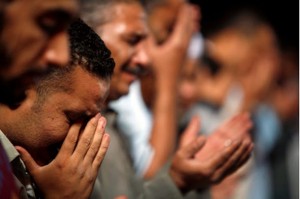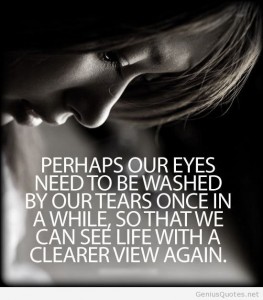The sound of joy and weeping
So in the last blog, we learnt this –
On the first day of the seventh month they began to offer burnt offerings to the Lord, though the foundation of the Lord’s temple had not yet been laid. Ezra 3:6
So what comes next?
Then they gave money to the masons and carpenters, and gave food and drink and olive oil to the people of Sidon and Tyre, so that they would bring cedar logs by sea from Lebanon to Joppa, as authorized by Cyrus king of Persia. Ezra 3:7
Preparations. They resource the job. They gather everything that they need before they start. And that takes a long time.
In the second month of the second year after their arrival at the house of God in Jerusalem, Zerubbabel son of Shealtiel, Joshua son of Jozadak and the rest of the people (the priests and the Levites and all who had returned from the captivity to Jerusalem) began the work. They appointed Levites twenty years old and older to supervise the building of the house of the Lord. Joshua and his sons and brothers and Kadmiel and his sons (descendants of Hodaviah) and the sons of Henadad and their sons and brothers—all Levites—joined together in supervising those working on the house of God. Ezra 3:8-9
In the second month of the second year, they finally begin what they returned to do. Two years on! That must have taken some patience and perseverance and vision! You can imagine the joy when the foundations were laid –
When the builders laid the foundation of the temple of the Lord, the priests in their vestments and with trumpets, and the Levites (the sons of Asaph) with cymbals, took their places to praise the Lord, as prescribed by David king of Israel. With praise and thanksgiving they sang to the Lord:
“He is good;
his love toward Israel endures forever.”
And all the people gave a great shout of praise to the Lord, because the foundation of the house of the Lord was laid. Ezra 3:10-11
Praising God arouses great emotion. It should. Our souls are finding a way to express all that they contain to God. We are touched at the deepest level. And so we should not be surprised when mixed emotions are expressed.
But many of the older priests and Levites and family heads, who had seen the former temple, wept aloud when they saw the foundation of this temple being laid, while many others shouted for joy. No one could distinguish the sound of the shouts of joy from the sound of weeping, because the people made so much noise. And the sound was heard far away. Ezra 3:12-13
 I love this scene. This is how worship should be. Everyone is responding in their own way. They can’t help it. It’s bursting out of them. How overwhelmingly emotional must this event be for the older priests and Levites and family heads? They remember. They’ve been clinging onto the hope of this restoration for the whole of their lives. Some will have lost hope. Many will have given up hope that this event would even be possible. Certainly not in their lifetime. The relief and sorrow and joy and gratitude to God must have been immense.
I love this scene. This is how worship should be. Everyone is responding in their own way. They can’t help it. It’s bursting out of them. How overwhelmingly emotional must this event be for the older priests and Levites and family heads? They remember. They’ve been clinging onto the hope of this restoration for the whole of their lives. Some will have lost hope. Many will have given up hope that this event would even be possible. Certainly not in their lifetime. The relief and sorrow and joy and gratitude to God must have been immense.
I wonder how understanding the ‘others’ were. The others who were shouting for joy.
‘Why are you sad? Surely this is what you wanted!’
Maybe. Maybe they understood. I like to think so.
So let’s think about our situation. Any song that we sing in church can mean so many different things to so many different people. Even different things to the same person on a different day. The words can stir up memories. The music can touch our soul. A particular phrase can strike a chord.
Singing is emotional. Worship is emotional. It is right that people should shout for joy, while others weep aloud. We should never feel that church worship is just about joy and victory and a positive outlook. It’s about being real. It’s about finding hope in despair, comfort in sadness, strength in weakness.
 I struggle with being told to stand up or clap at a certain point or sing louder……worship is a personal response to the living God. I love it when people cry, because it shows that they have been moved and that God is working in their lives. My son Jordan hates it. He hates seeing people cry. He finds it embarrassing and unsettling, I guess. Why would anyone come to church to get upset? And I have a friend who won’t come to church at all because she knows that she’ll start crying as soon as the singing starts……what a shame she feels that way or that she’s been made to feel that that is not a good thing, that maybe it is not acceptable or will be seen as embarrassing.
I struggle with being told to stand up or clap at a certain point or sing louder……worship is a personal response to the living God. I love it when people cry, because it shows that they have been moved and that God is working in their lives. My son Jordan hates it. He hates seeing people cry. He finds it embarrassing and unsettling, I guess. Why would anyone come to church to get upset? And I have a friend who won’t come to church at all because she knows that she’ll start crying as soon as the singing starts……what a shame she feels that way or that she’s been made to feel that that is not a good thing, that maybe it is not acceptable or will be seen as embarrassing.
It’s not just worship that touches our soul and makes us want to cry – any music, any singing, dance, a piece of writing, a film, an act of kindness or resilience. Don’t ever feel ashamed about crying. Please.
 When I see someone cry, I envy them. I don’t cry, you see. I feel like crying pretty much every single day. It’s not that I don’t feel emotion. It’s not that I am not deeply moved. I just struggle to express it. I wish I could cry. The last time any tears escaped my eyes was back in July. So maybe I cry about twice a year. I’d love for you to teach me to let go and cry.
When I see someone cry, I envy them. I don’t cry, you see. I feel like crying pretty much every single day. It’s not that I don’t feel emotion. It’s not that I am not deeply moved. I just struggle to express it. I wish I could cry. The last time any tears escaped my eyes was back in July. So maybe I cry about twice a year. I’d love for you to teach me to let go and cry.
So don’t ever see crying as weakness, something to be embarrassed about. Come to church and sit next to me and feel free to cry. Let’s allow everyone to express themselves in their own gloriously individual way.
And somehow I will learn to cry.













You have offered so much more than words, I thank you with all my heart.
I am profoundly moved by your truth. ?